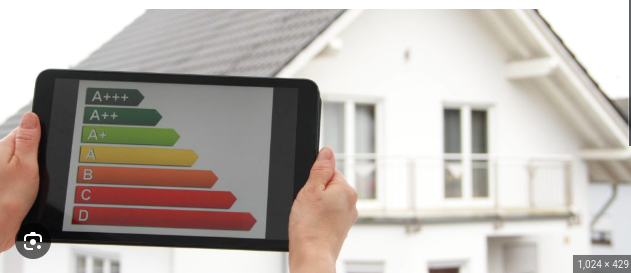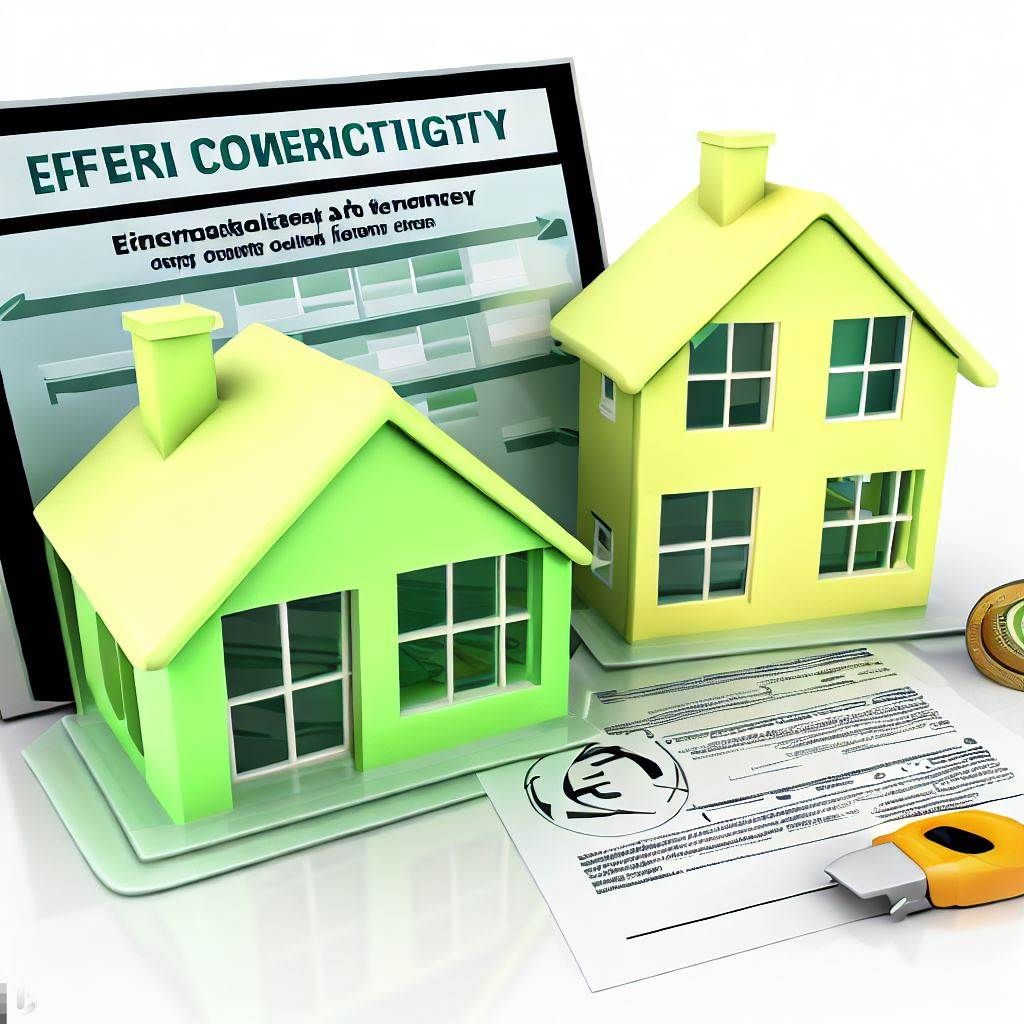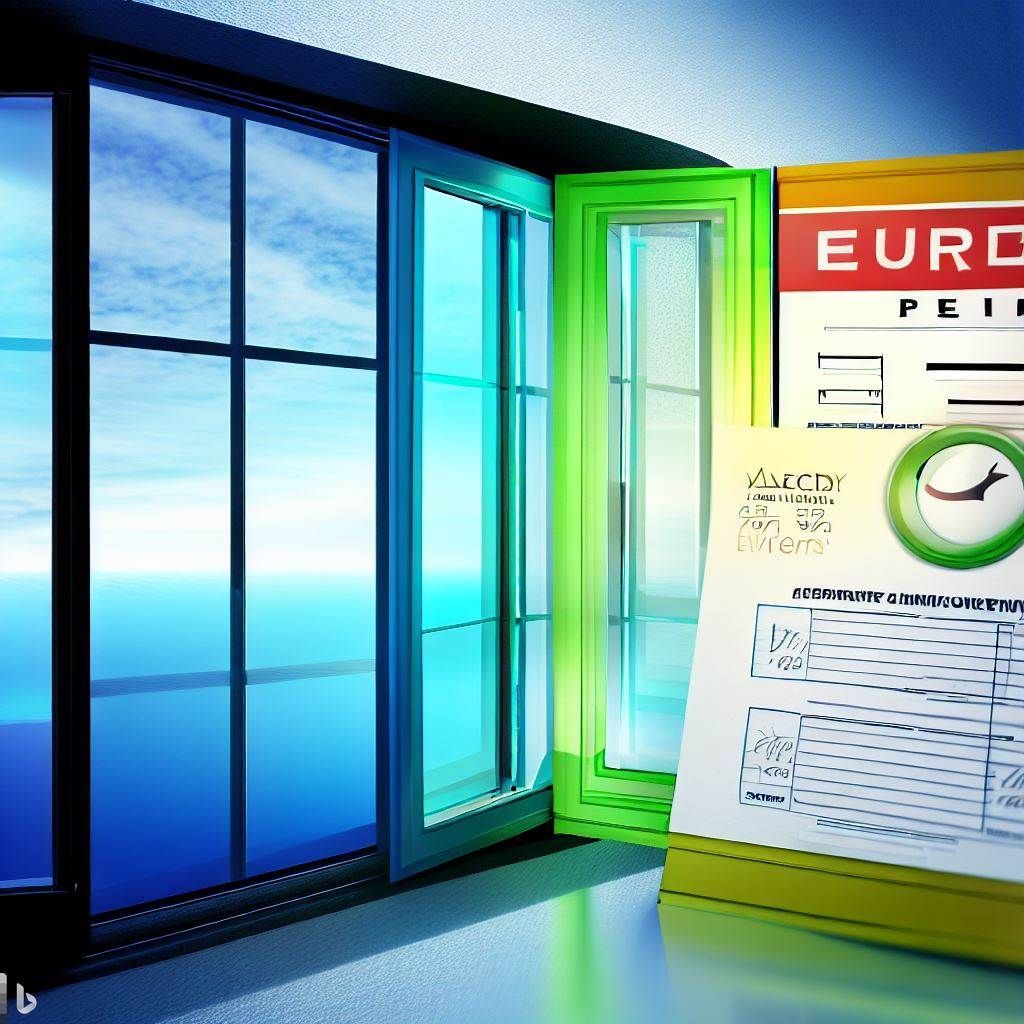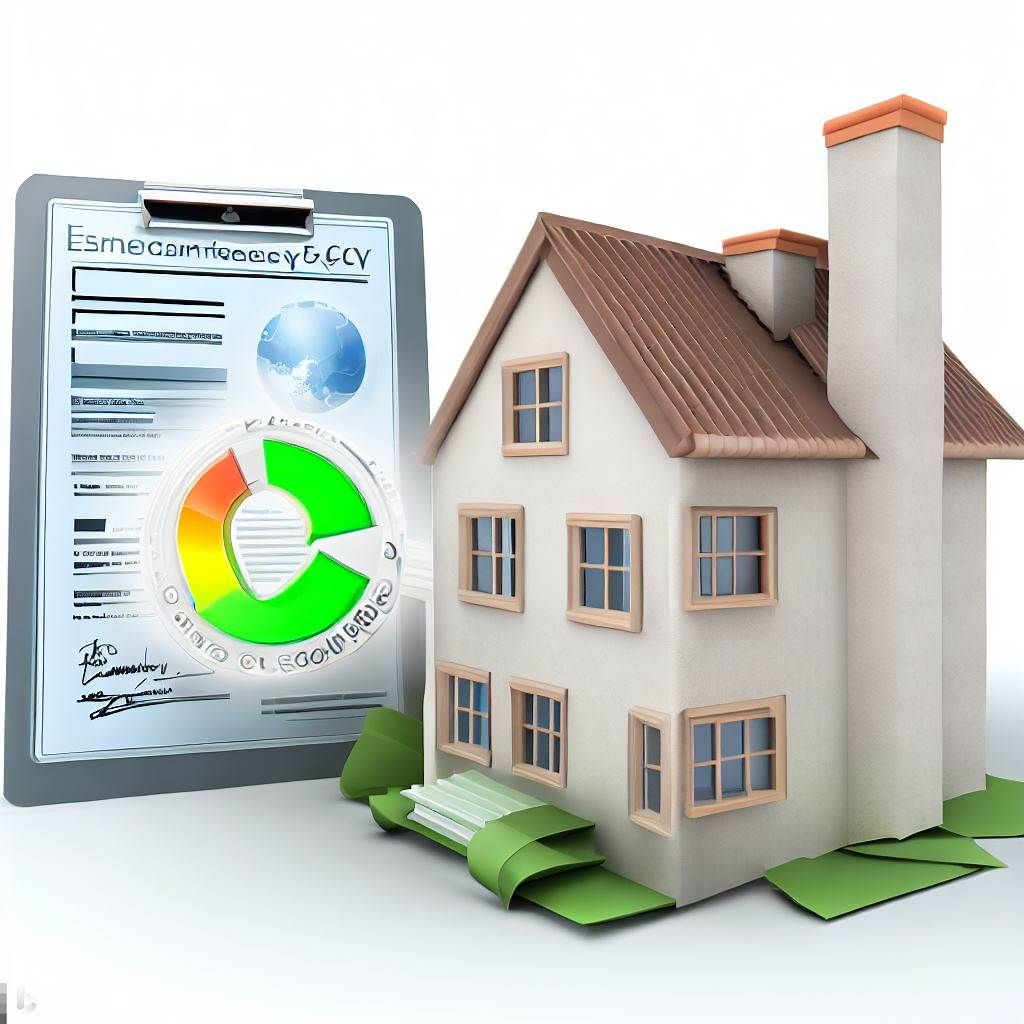How much does a EPC certificate cost?
My Guide To Show You The Expected Cost For An EPC Certificate.

Table of Contents:
1. Introduction
2. Domestic EPC
2.1 Factors Affecting Cost
2.2 Price Range
2.3 EPC Register
2.4 EPC Validation Period
2.5 The Role of Estate Agents
2.6 Listed Buildings
2.7 Energy Efficiency Rating Explanation
2.8 Minimum Energy Efficiency Standards
3. Commercial EPC
3.1 Factors Affecting Cost
3.2 Price Range
4. Regional and Assessor Variations
5. Obtaining Quotes and Comparing Services from Accredited Domestic Energy Assessors
6. Conclusion
1. Introduction:
Energy Performance Certificates (EPCs) play a crucial role in assessing and improving the energy efficiency of both domestic and commercial properties. Understanding the intricacies of EPCs is essential for homeowners, tenants, landlords, and property professionals alike. This comprehensive guide will delve into the various aspects of EPCs, ranging from their importance to the factors influencing their cost and the specific requirements for different property types.
Domestic EPC Cost:
A domestic EPC is a certificate that provides an energy efficiency rating for residential properties. This section explores the factors that influence the cost of obtaining a domestic EPC, the typical price range, and the importance of registering the EPC. Additionally, we'll discuss the validation period of EPCs and how estate agents contribute to the process. We will also cover specific considerations for listed buildings, explaining how the energy efficiency rating is calculated and the significance of minimum energy efficiency standards.
Commercial EPC Cost:
Commercial properties require their own version of an EPC to assess their energy efficiency. In this section, we'll delve into the factors that affect the cost of obtaining a commercial EPC, the typical price range, and any regional or assessor variations that might exist. Understanding the specific requirements for commercial properties is essential for property owners and tenants alike.
Obtaining Quotes and Comparing Services from Accredited Domestic Energy Assessors:
To obtain an accurate and reliable EPC, it is crucial to engage the services of accredited domestic energy assessors. This section provides practical advice on how to obtain quotes from assessors, compare their services, and ensure they meet the necessary accreditation standards. Making informed decisions when choosing an assessor can greatly impact the quality and reliability of the EPC you receive.
Conclusion:
Energy Performance Certificates are a vital tool in promoting energy efficiency in both domestic and commercial properties. By understanding the factors that affect their cost, the significance of their ratings, and the specific requirements for different property types, property owners, tenants, and professionals can make informed decisions to improve energy efficiency. Whether you're considering selling, renting, or simply want to enhance your property's sustainability, EPCs are an essential aspect of modern property management.
By following the guidelines outlined in this blog post, readers will be better equipped to navigate the complexities of EPCs, ensuring a more energy-efficient and sustainable future for all.
2. Domestic EPC
In the United Kingdom, Energy Performance Certificates (EPCs) are crucial for domestic properties as they provide valuable insights into their energy efficiency and environmental impact. Whether you are a homeowner, tenant, or landlord, understanding the various aspects of domestic EPCs is essential for making informed decisions regarding energy consumption and potential improvements. This section will explore several key components related to domestic EPCs in the UK.
2.1 Factors Affecting Cost:
The cost of obtaining a domestic EPC in the UK can vary depending on several factors. These factors include the size and type of the property, its location, the complexity of its construction, and the services provided by the energy assessor. Larger properties tend to require more time for assessment, resulting in higher costs. Similarly, properties located in remote areas may incur additional expenses due to travel considerations for the energy assessor. The complexity of a property's construction, such as unique architectural features or unconventional heating systems, can also impact the assessment process, potentially increasing the cost.
2.2 Price Range:
The price range for obtaining a domestic EPC in the UK can vary. It is advisable to research and obtain multiple quotes from accredited domestic energy assessors to ensure a fair price. The cost can range from around £50 to £120, depending on the factors mentioned earlier. It's important to consider the reputation, experience, and accreditation of the energy assessor, as well as any additional services included in the price, such as recommendations for energy efficiency improvements.
2.3 EPC Register:
Once an energy assessment has been completed, the resulting EPC should be registered on the official EPC Register in the UK. The EPC Register is a national database that stores information about energy performance certificates. The register serves as a central repository where prospective buyers, tenants, and relevant authorities can access and verify the energy efficiency rating of a property. It is essential for the EPC to be registered, as it provides transparency and ensures compliance with regulatory requirements in the UK.
2.4 EPC Validation Period:
EPCs in the UK have a validation period, indicating the duration for which the certificate remains valid. For domestic properties, the standard validation period is ten years. It is important to be aware of this timeframe, as an outdated EPC may not accurately represent the current energy efficiency of a property. Property owners should consider renewing their EPCs before the expiration date, especially if they plan to sell or rent the property, to provide potential buyers or tenants with up-to-date information.
2.5 The Role of Estate Agents:
Estate agents play a significant role in the process of obtaining and utilising EPCs for domestic properties in the UK. When marketing a property for sale or rent, estate agents are responsible for ensuring that a valid EPC is available to potential buyers or tenants. They should prominently display the energy efficiency rating in property listings and provide copies of the EPC to interested parties. Estate agents can also offer advice on improving energy efficiency, such as recommending energy-saving measures or suggesting renovations to enhance the property's rating.
2.6 Listed Buildings:
Listed buildings in the UK, which are properties of historical or architectural significance, present unique considerations when it comes to EPCs. While EPCs are generally required for listed buildings, there are specific exemptions and considerations regarding energy efficiency improvements. Preservation of the building's historic features and architectural integrity may take precedence over certain energy efficiency measures. It is advisable to consult with conservation officers or relevant authorities to determine the specific requirements and exemptions for listed properties in the UK.
2.7 Energy Efficiency Rating Explanation:
The energy efficiency rating provided in a domestic EPC offers valuable information about the energy performance of a property in the UK. The rating is typically displayed on a scale ranging from A to G, with A representing the highest level of energy efficiency and G indicating the lowest. This rating is calculated based on factors such as insulation, heating systems, windows, and energy consumption patterns specific to the UK. The energy efficiency rating helps homeowners and tenants understand the potential energy costs associated with the property and identify areas where improvements can be made.
2.8 Minimum Energy Efficiency Standards:
In the UK, Minimum Energy Efficiency Standards (MEES) have been introduced to improve the energy efficiency of domestic properties. These standards set a minimum energy efficiency requirement for properties, aiming to reduce carbon emissions and lower energy bills for occupants. Since April 2018, it has been illegal for landlords to rent out properties with an energy efficiency rating below an E (unless exempted). This requirement applies to new tenancies and renewals. By April 2025, the requirement will extend to all existing tenancies. It is important for property owners and landlords to ensure their properties comply with these standards to avoid penalties and legal implications.
Understanding the various aspects of domestic EPCs in the UK empowers homeowners, tenants, and landlords to make informed decisions about energy efficiency improvements, reduce carbon footprints, and potentially save on energy costs. By considering factors affecting cost, understanding the price range, registering the EPC, recognising the role of estate agents, acknowledging specific considerations for listed buildings, comprehending the energy efficiency rating, and being aware of minimum energy efficiency standards, individuals can actively contribute to creating a more sustainable future for their properties and the environment as a whole.
3. Commercial EPC:
Energy Performance Certificates (EPCs) are not limited to domestic properties in the United Kingdom. Commercial properties also require EPCs to assess their energy efficiency and provide relevant information to potential buyers, tenants, and regulatory authorities. This section will delve into various aspects related to commercial EPCs.
3.1 Factors Affecting Cost:
Similar to domestic EPCs, several factors can influence the cost of obtaining a commercial EPC. The size and complexity of the commercial property play a significant role, as larger and more intricate buildings may require more time and resources for assessment. Other factors include the type of commercial property, its location, and the specific services provided by the energy assessor. Commercial properties with specialsed features, such as complex heating, ventilation, and air conditioning (HVAC) systems or unique architectural designs, may require additional expertise and resources, resulting in higher costs.
3.2 Price Range:
The price range for obtaining a commercial EPC in the UK can vary depending on the factors mentioned earlier. It is advisable for property owners or those responsible for obtaining the EPC to research and obtain multiple quotes from accredited commercial energy assessors. The cost of a commercial EPC can range from a few hundred pounds to several thousand pounds, depending on the size, complexity, and specific requirements of the property. It is important to consider the reputation, experience, and accreditation of the energy assessor, as well as any additional services included in the price.
3.3 Regional and Assessor Variations:
When obtaining a commercial EPC in the UK, it's essential to be aware of potential regional and assessor variations. Different regions may have varying demand for energy assessors, which can impact availability and pricing. Additionally, individual energy assessors may have their own pricing structures and approaches to the assessment process. Therefore, it is advisable to research local regulations and consult multiple assessors to compare services, prices, and expertise. Engaging the services of an accredited and experienced energy assessor ensures the accuracy and reliability of the commercial EPC.
Understanding the specific requirements and considerations for commercial EPCs in the UK is crucial for property owners, tenants, and professionals involved in commercial real estate. By considering the factors affecting cost, understanding the price range, and being mindful of regional and assessor variations, individuals can navigate the process of obtaining a commercial EPC more effectively.
Commercial EPCs provide valuable information about a property's energy efficiency, helping businesses and organisations make informed decisions regarding energy consumption, cost savings, and environmental impact. Additionally, compliance with minimum energy efficiency standards and awareness of energy-saving measures can contribute to sustainable practices and align with regulatory requirements.
By investing in energy-efficient measures and utilising the information provided by commercial EPCs, businesses can enhance their reputation, reduce operating costs, and contribute to a greener future.
4. Obtaining Quotes and Comparing Services from Accredited Commercial Energy Assessors.
When seeking a commercial Energy Performance Certificate (EPC) in the United Kingdom, it is important to obtain quotes from accredited commercial energy assessors and compare their services. This section will guide you through the process of obtaining quotes, evaluating assessors, and selecting the right professional for your commercial EPC needs.
4.1 Research and Identify Accredited Assessors:
Start by conducting thorough research to identify accredited commercial energy assessors in your area. Look for assessors who hold the necessary qualifications and certifications, such as accreditation by bodies like the National Energy Services (NES) or other recognised organisations. The UK government's EPC Register is a valuable resource for finding registered assessors.
4.2 Request Quotes:
Contact multiple accredited assessors to request quotes for your commercial EPC. Provide them with details about your property, including its size, type, and location. Be prepared to answer questions about the property's features, such as HVAC systems, insulation, and lighting. This information will help the assessors provide accurate quotes tailored to your specific requirements.
4.3 Consider Services Included:
When comparing quotes, carefully consider the services included in each package. Commercial energy assessors may offer additional services beyond the basic EPC assessment, such as energy-saving recommendations or ongoing energy management support. Assess whether these additional services align with your goals and budget. Remember, choosing an assessor based solely on the lowest price may not provide the comprehensive services and expertise required for your commercial property.
4.4 Evaluate Experience and Expertise:
Assess the experience and expertise of each assessor you are considering. Look for assessors with a track record in assessing commercial properties similar to yours in size, complexity, and sector. Consider their level of expertise in specialised areas, such as industrial properties, retail spaces, or office buildings. Assessors with industry-specific knowledge can provide tailored advice and insights to help improve the energy efficiency of your commercial property.
4.5 Assess Customer Reviews and References:
Customer reviews and references can offer valuable insights into the quality and professionalism of commercial energy assessors. Search for reviews online and ask assessors for references from previous clients. Reach out to these references to gather feedback on their experience with the assessor's services. This step can help you assess their reliability, timeliness, and the level of customer satisfaction they provide.
4.6 Compare Pricing:
While price should not be the sole determining factor, it is essential to compare the pricing offered by different assessors. Take into account the scope of services included, the assessors' experience and expertise, and their reputation. Opting for the lowest-priced quote without considering these factors may result in subpar services or a lack of comprehensive advice for improving your commercial property's energy efficiency.
4.7 Communication and Professionalism:
Lastly, consider the assessors' communication style and professionalism. It is important to work with an assessor who is responsive, transparent, and able to explain the assessment process and findings clearly. Effective communication ensures that you understand the EPC results and any recommendations provided, enabling you to make informed decisions regarding energy efficiency improvements for your commercial property.
By following these steps and carefully evaluating quotes and services from accredited commercial energy assessors, you can select a professional who meets your specific needs, provides accurate assessments, and offers valuable advice for improving the energy efficiency of your commercial property.
Remember that investing in energy efficiency not only reduces operational costs but also contributes to environmental sustainability and regulatory compliance. By obtaining a comprehensive and reliable commercial EPC, you can take proactive steps towards a greener and more energy-efficient future for your business.
5. Conclusion
Energy Performance Certificates (EPCs) play a vital role in the United Kingdom's efforts to promote energy efficiency and reduce carbon emissions in both domestic and commercial properties. Understanding the key aspects of EPCs is essential for homeowners, tenants, landlords, and businesses to make informed decisions, comply with regulations, and contribute to a more sustainable future.
In this blog post, we explored various components related to domestic and commercial EPCs. We discussed factors that can affect the cost of obtaining an EPC, such as property size, complexity, and location. Understanding the price range and obtaining multiple quotes from accredited assessors allows individuals to make cost-effective decisions while ensuring the quality of the assessment.
We also highlighted the importance of registering EPCs on the official EPC Register in the UK, as it provides transparency and accessibility to potential buyers, tenants, and regulatory authorities. Recognising the role of estate agents in marketing properties with valid EPCs and understanding the considerations for listed buildings are essential for navigating the EPC process effectively.
Additionally, we delved into the significance of energy efficiency ratings provided by EPCs, which enable individuals to assess the potential energy costs associated with a property and identify areas for improvement. We also emphasised the importance of complying with minimum energy efficiency standards, as non-compliance may lead to penalties and legal implications.
In the commercial context, we discussed factors affecting the cost of commercial EPCs, such as property size, complexity, and the specific services provided by energy assessors. We emphasised the need to research, obtain quotes, and compare services from accredited assessors to ensure accurate assessments and comprehensive advice for improving energy efficiency in commercial properties.
By following these guidelines and utilising the information provided by EPCs, individuals can actively contribute to reducing energy consumption, lowering carbon emissions, and potentially saving on energy costs. Implementing energy efficiency measures not only benefits the environment but also enhances the reputation of properties and businesses.#
In conclusion, EPCs serve as valuable tools in assessing and improving the energy
efficiency of properties in the United Kingdom. By understanding the various aspects discussed in this blog post, individuals can make informed decisions, comply with regulations, and actively contribute to creating a sustainable and energy-efficient future. Whether you are a homeowner, tenant, landlord, or business owner, harnessing the power of EPCs can lead to long-term benefits for both the environment and your property.










